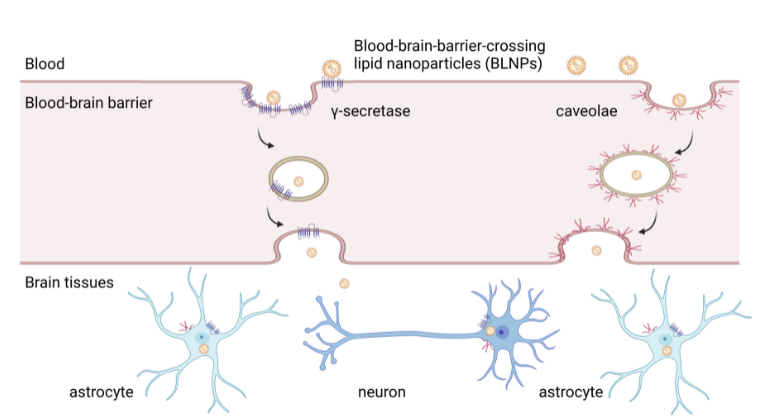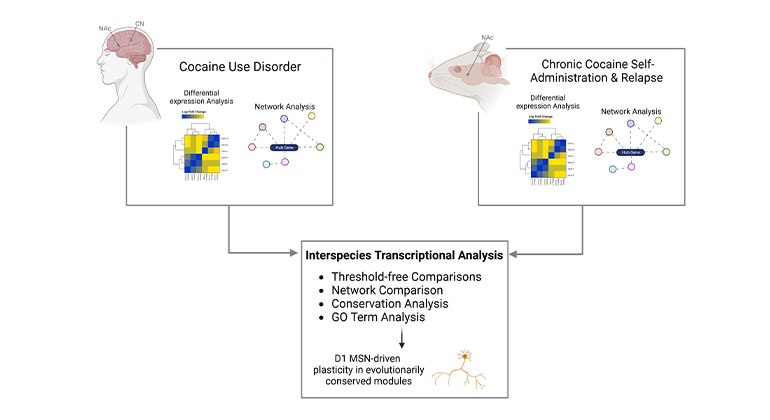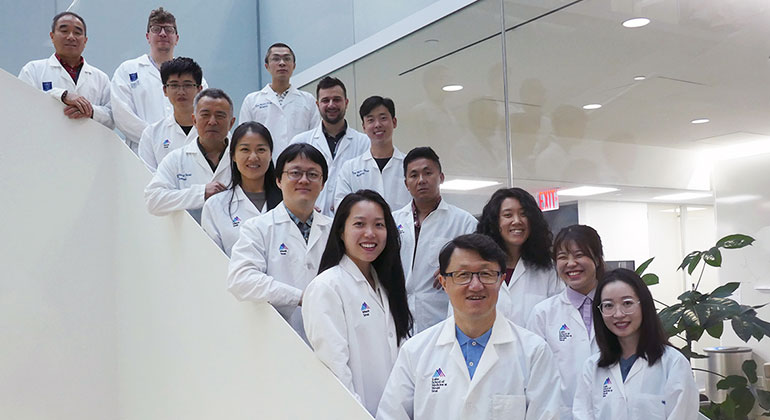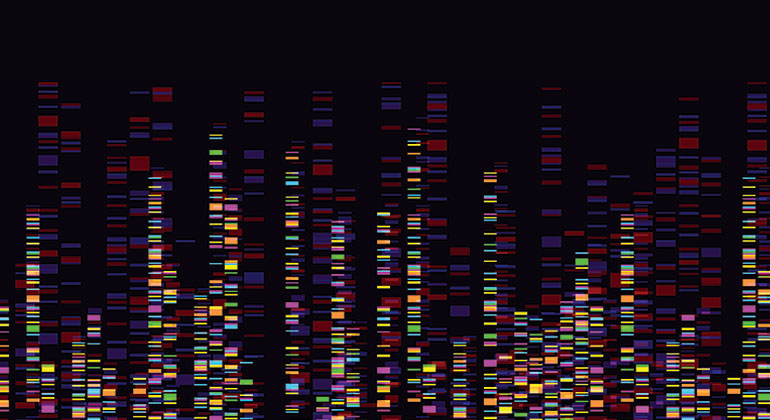New Scientific Evidence Emerges on How Individuals Transition From Recreational to Compulsive Use of Drugs
Mount Sinai investigators identify a novel molecule and signaling pathway in the brain that plays a key role in addiction-like behavior
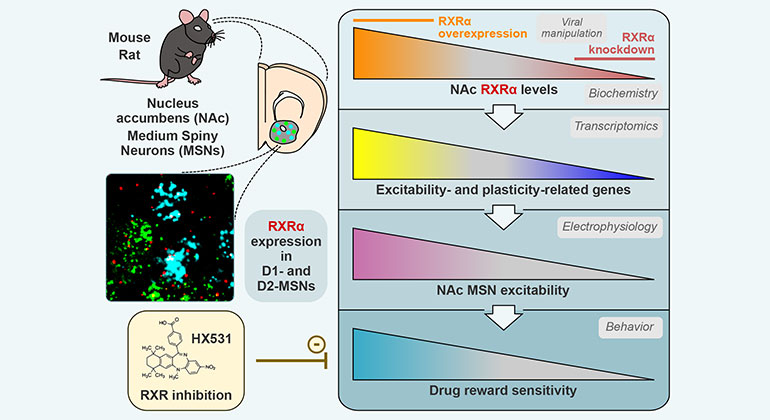
While substance use disorder (SUD) remains a clinically and socially devastating condition in the U.S. and worldwide, the phenomenon of how individuals transition from recreational to compulsive drug use is yet to be fully understood.
Researchers at the Icahn School of Medicine at Mount Sinai have opened the door to a promising new realm of discovery with the identification of a molecule and a previously unsuspected signaling pathway that appear to be pivotal to the pathophysiology of drug addiction. The molecule is known as Retinoid X Receptor Alpha (RXRα) in the nucleus accumbens, a key brain region for addiction, which appears to dictate in part the sensitivity of individuals to the initially rewarding properties of drug use. The team’s findings were reported in the journal Neuron.
Specifically, the nucleus accumbens is a region of the brain’s reward circuitry that integrates midbrain inputs of dopamine -- a neurotransmitter that affects many aspects of behavior, including how we experience pleasure – to shape reward- and motivation-related behaviors. Within this construct, researchers in the Nash Family Department of Neuroscience and the Friedman Brain Institute at Icahn Mount Sinai learned that RXRα positively correlated with addiction-relevant behavioral features in laboratory rodents -- a finding that makes the molecule a strong mechanistic candidate to link individual vulnerability to cocaine addiction. Fundamental to the study was RNA sequencing on six regions of the rodent’s brain reward circuitry after cocaine self-administration, withdrawal, and relapse in mice.
The discovery not only paves the way for future research on the novel signaling pathway, but on preventive strategies for drug addiction targeting RXRα. The Mount Sinai team showed that inhibition of the molecule using a systemically administered RXRα antagonist reduced cocaine-induced associative learning with tolerable side effects. Scientists were particularly intrigued and encouraged by the fact that a single molecule could have such a profound effect on modulating complex behaviors related to drug addiction. It further highlighted for them the effectiveness of bioinformatically harnessing large-scale datasets as part of the effort to unravel novel answers to brain maladaptations in an unbiased manner.
Previous studies have linked RXRα signaling to other neuropsychiatric pathologies -- including Alzheimer’s disease, Parkinson’s disease, multiple sclerosis, and diabetes -- and Mount Sinai researchers believe that their latest findings could lead to future studies of RXRα involvement in psychiatric disease states like these. Over the short term, they plan to apply their groundbreaking research to opioid drugs, whose rampant spread and abuse resulted in more than 564,000 deaths in the U.S. from overdose in the period 1999 to 2020, and for which early evidence suggests a similar action of RXRα.
Who: Arthur Godino, neuroscience graduate student, Graduate School of Biomedical Sciences, Icahn School of Medicine at Mount Sinai, and Eric J. Nestler, MD, PhD, the Nash Family Professor of Neuroscience, Director of the Friedman Brain Institute, and Dean for Academic Affairs at Icahn Mount Sinai, and Chief Scientific Officer of the Mount Sinai Health System.
Funding: The study was supported by the Boehringer Ingelheim Fonds (PhD Fellowship to A.G.) and the National Institute on Drug Addiction (P01DA047233 to E.J.N.).
About the Mount Sinai Health System
Mount Sinai Health System is one of the largest academic medical systems in the New York metro area, employing 48,000 people across its hospitals and more than 400 outpatient practices, as well as more than 600 research and clinical labs, a school of nursing, and a leading school of medicine and graduate education. Mount Sinai advances health for all people, everywhere, by taking on the most complex health care challenges of our time—discovering and applying new scientific learning and knowledge; developing safer, more effective treatments; educating the next generation of medical leaders and innovators; and supporting local communities by delivering high-quality care to all who need it.
Through the integration of its hospitals, labs, and schools, Mount Sinai offers comprehensive health care solutions from birth through geriatrics, leveraging innovative approaches such as artificial intelligence and informatics while keeping patients’ medical and emotional needs at the center of all treatment. The Health System includes approximately 9,000 primary and specialty care physicians and 11 free-standing joint-venture centers throughout the five boroughs of New York City, Westchester, Long Island, and Florida. Hospitals within the System are consistently ranked by Newsweek’s® “The World’s Best Smart Hospitals, Best in State Hospitals, World Best Hospitals and Best Specialty Hospitals” and by U.S. News & World Report's® “Best Hospitals” and “Best Children’s Hospitals.” The Mount Sinai Hospital is on the U.S. News & World Report® “Best Hospitals” Honor Roll for 2024-2025.
For more information, visit https://www.mountsinai.org or find Mount Sinai on Facebook, Twitter and YouTube.
